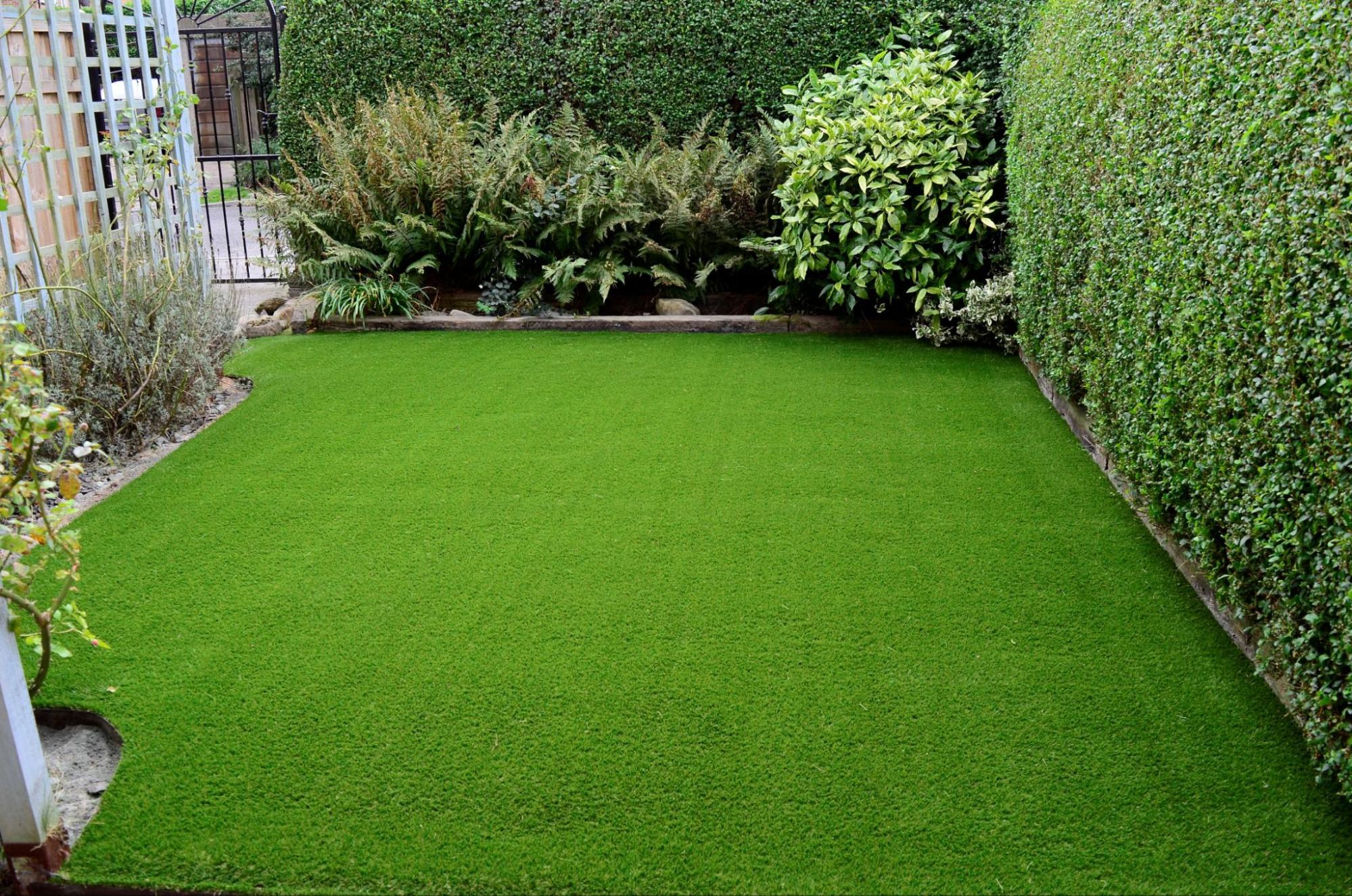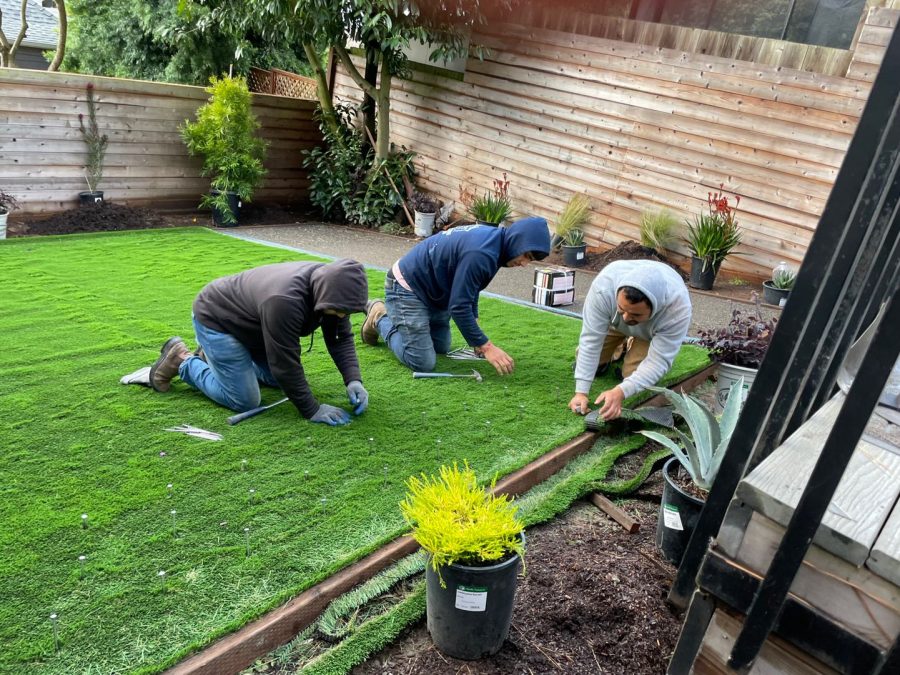Professional Arizona Turf Providers Delivering a Lifelike Lawn Option
Professional Arizona Turf Providers Delivering a Lifelike Lawn Option
Blog Article
Delve Into the Environmental Perks of Opting for Artificial Grass Solutions
The adoption of man-made turf remedies presents an engaging chance to deal with pressing ecological challenges. By substantially lowering water usage and reducing the application of hazardous chemicals, these options not just advertise lasting landscape design however likewise shield neighborhood communities.
Water Preservation Benefits
Among one of the most significant advantages of synthetic grass is its capacity to preserve water. Typical turf lawns require substantial irrigation, particularly in areas prone to drought or water restrictions. In contrast, man-made grass does not need watering, considerably minimizing the total need for water resources. This feature is particularly advantageous in deserts where water shortage is a pressing issue.
By eliminating the demand for routine watering, synthetic turf adds to sustainable landscape methods and helps mitigate the ecological impact of extreme water intake. The conservation of water expands to the decrease of runoff, which can lead to soil disintegration and river contamination.
In addition, the setup of synthetic grass enables municipalities and house owners to designate water sources a lot more successfully, concentrating on vital usages such as drinking water and farming. The shift towards synthetic lawn not only promotes accountable water use yet likewise straightens with broader environmental goals targeted at maintaining natural deposits.
As neighborhoods progressively focus on sustainability, the water preservation benefits of artificial turf provide an engaging instance for its adoption in business and household landscape design tasks.
Reduced Chemical Usage
The shift to synthetic grass dramatically lowers the reliance on chemical treatments commonly used in all-natural yard maintenance. Traditional turf monitoring typically entails the application of herbicides, pesticides, and plant foods to promote development and control bugs. These chemicals can pose threats to human wellness, regional wildlife, and the environment, contributing to dirt and water contamination.
In comparison, fabricated grass eliminates the need for these damaging substances. As soon as set up, it requires minimal maintenance, mostly containing normal cleaning and infrequent infill replenishment. This decrease in chemical usage not just benefits the prompt setting but additionally adds to broader eco-friendly security. By reducing the launch of synthetic substances into the community, artificial lawn promotes much healthier soil and water supply.
Furthermore, the absence of chemical runoff connected with synthetic grass installments helps secure local waterways from contamination, supporting water life and keeping biodiversity. Arizona artificial turf. As neighborhoods progressively prioritize lasting techniques, going with synthetic grass offers a sensible option that straightens with ecological preservation goals. With this change, home proprietors can delight in lavish environment-friendly spaces without jeopardizing environmental health and wellness, paving the method for an extra lasting future
Lower Carbon Impact

Furthermore, the installment of synthetic lawn can cause significant water conservation. Natural lawns need substantial quantities of water for watering, which not only contributes to the carbon impact connected with water removal and therapy but likewise strains neighborhood water sources. On the other hand, synthetic grass needs minimal maintenance, needing no watering, therefore significantly reducing water usage and its linked power costs.
Additionally, the longevity of synthetic grass contributes to its reduced carbon impact. With a lifespan of up to 15 years or even more, the demand for frequent replacements is diminished, causing much less waste and lower power usage in manufacturing and throwing away standard lawn options. On the whole, man-made grass presents a lasting option for environmentally conscious landscape design.
Environment Preservation
Environment preservation is a critical factor to consider in the argument over landscape design selections, specifically when comparing fabricated grass to all-natural grass. All-natural yard lawns typically call for substantial upkeep, including the usage of herbicides, plant foods, and chemicals, which can detrimentally influence neighborhood environments. These chemicals can seep right into the soil and waterways, harming indigenous flora and animals and interfering with neighborhood environments.
Artificial turf removes the demand for damaging chemicals, thus safeguarding neighboring wildlife and keeping the integrity of surrounding environments. The setup of artificial grass can lead to the conversion of previous turf areas right into more biodiverse landscapes, such as pollinator yards or indigenous plant locations, which can support local wildlife.
Inevitably, the transition to synthetic grass not only conserves water and lowers maintenance initiatives however likewise promotes a much more unified connection in between human tasks and the all-natural environment, promoting habitat preservation while doing so.
Long-Term Sustainability
Long-lasting sustainability is an essential consider reviewing the benefits of synthetic grass over conventional yard lawns. One of the most significant advantages of artificial turf is its toughness; it can last up to 15-20 years with minimal maintenance, whereas all-natural grass needs constant reseeding and substitute. This longevity decreases the demand for continuous sources, such as water, plant foods, and pesticides, which are important for maintaining a healthy grass lawn.
In addition, synthetic grass adds to a reduction in carbon discharges connected with yard treatment devices. Typical lawns commonly call for gas-powered lawn mowers, trimmers, and blowers, all of which add to air contamination. Artificial turf companies phoenix. In comparison, synthetic grass gets rid of the need for such equipment, promoting a cleaner atmosphere
In addition, the manufacturing of synthetic grass progressively makes use of recycled products, enhancing its sustainability account. As suppliers embrace eco-friendly methods, click here for info the ecological footprint of synthetic grass proceeds to reduce.

Verdict
The fostering of synthetic grass solutions presents considerable environmental advantages, consisting of considerable water preservation, lowered dependence on dangerous chemicals, and a lower carbon impact. Additionally, synthetic grass aids in protecting natural habitats by minimizing land disturbance and advertising long-term sustainability with the use of long lasting products. Jointly, these elements emphasize the possibility of synthetic grass to add positively to environmental wellness and offer a sensible option to typical landscaping methods in an increasingly resource-conscious world.
In comparison, fabricated turf does not need watering, dramatically lowering the overall need for water resources. By reducing the launch of artificial substances right into the ecosystem, fabricated turf advertises much healthier dirt and water systems.
In addition, the installation of fabricated lawn can result in significant water conservation. In contrast, synthetic grass needs marginal maintenance, requiring no watering, thus substantially minimizing water use and its connected power prices.

Report this page